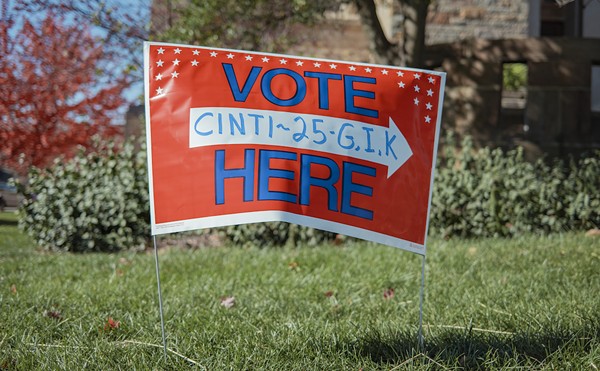I've been thinking lately about embracing a personally forgotten aspect of the holiday season. I want to go home again, despite the sentiment expressed by fellow Asheville, N.C., native Thomas Wolfe.
I haven't been back in almost 10 years. There was a stretch when the main reason for a visit was to attend funerals. I lost my grandmother and several aunts in succession and found myself meeting up with my boys in churches and cemeteries. We knew it was wrong for a group of grown men in their mid-twenties with jobs standing on the cusp of starting families of our own to gather only to bury our kin.
So for a couple of years we celebrated our lifelong brotherhood over the course of birthdays and summer festivals. We were doing our best to relive our ragtag memories of surviving in a small Southern city that most of my boys begrudgingly called home.
I was the only one of my crew to be born and raised in Asheville. The others came as part of families who had bought into the buzz about that area being a great place to settle down and raise kids.
The funny thing about that buzz was that it wasn't exactly true when these families moved in. Back in the late 1970s and early '80s, Asheville and North Carolina as a state ranked near the bottom in education. And while the Blue Ridge Parkway and the Biltmore House offered stunning attractions for tourists, as a local resident I couldn't wait to escape.
Asheville held on to some of its less than appealing Southern attitudes. The polite airs couldn't conceal the deeply rooted, largely unspoken rules that separated various communities.
As a teenager, my boys and I knew there were certain areas of the city we didn't want to be caught in after dark. What makes this even sadder is that my crew was a hodgepodge of racial, ethnic and national factions. Wandering the streets of New York, no one would have given us a second glance, but in Asheville our geeky gang sounded the call for an uprising of the white sheets.
But somewhere along the way, Asheville changed. As I began my slow but steady migration to the North like so many black folks from previous generations, the seeds planted through the gradual emergence of a social and cultural class that had been infiltrating the region finally bore fruit.
While I marveled at the changes taking place in Philadelphia — experiencing an awakening of its own after a period of mismanagement, corruption and economic decline — Asheville was becoming a haven for boomers and a youthful creative class eager to trumpet a new age.
During the mid-'90s, when I returned regularly for reunions with my childhood friends, I always found time to wander the streets and old neighborhoods. I sought reminders of the old place, the old days. I don't add in the nostalgic "good old" tag — I knew the "good old" boys were still there, lying in waiting for the tide to turn.
Whenever I read about Asheville's ascension as a cultural mecca or talk to people who have recently visited and rave about my hometown, I find my resistance waning and a creeping homesickness seeping into my consciousness.
Yet I've slowly lost touch with the old place again. I was already too divided between my single, post-collegiate life in Philadelphia and my family here in Cincinnati. I moved here and began laying down roots in the Queen City with one hand while digging them up as quickly as possible with the other. I wasn't about to start thinking of this place as home.
If pressed, I continued to claim Philadelphia before Cincinnati. Without fail, though, Asheville would be the home of my heart no matter how long I had been away.
I recently initiated an e-mail exchange with a Cincinnatian living in New York. In her remarks about Cincinnati, I heard the same push-pull that echoes loudly in my remembrances of Asheville.
The desire to leave was strong while she was here, but in her life abroad — yes, a fitting term when considering the cultural and political gulf between regions across the country — she and others from Cincinnati living in the Big Apple maintain a strong affiliation and hometown pride. They keep an eye on local news and the political landscape, cheer the Bengals and long for a taste of Skyline.
The November elections brought Asheville back, front and center, in my thoughts. As Cincinnati ushered in a new mayor, Asheville also made a progressive move by electing its youngest mayor ever, an African-American woman to boot.
I voraciously searched the Web for all of the reports I could find about the region and its opinion-makers' thoughts on this historic vote. Like so many places, the liberal contingent had to bounce back after the last round of national elections that solidified the conservative foothold on policy. So Mayor Terry Bellamy must now stand up and lead a community deeply engaged in a struggle that could find its citizens beating a hasty retreat from youthful, creative energy back to the "good old" days.
I won't get back South again until sometime in the new year, but my holiday wish for my two homes, Asheville and Cincinnati, is that their citizens acknowledge the gifts they've been given in the form of their new mayors. Mayors Bellamy and Mallory, make me proud to call these cities home.
CONTACT TT CLINKSCALES: [email protected]. His column appears here in the third issue of each month.





